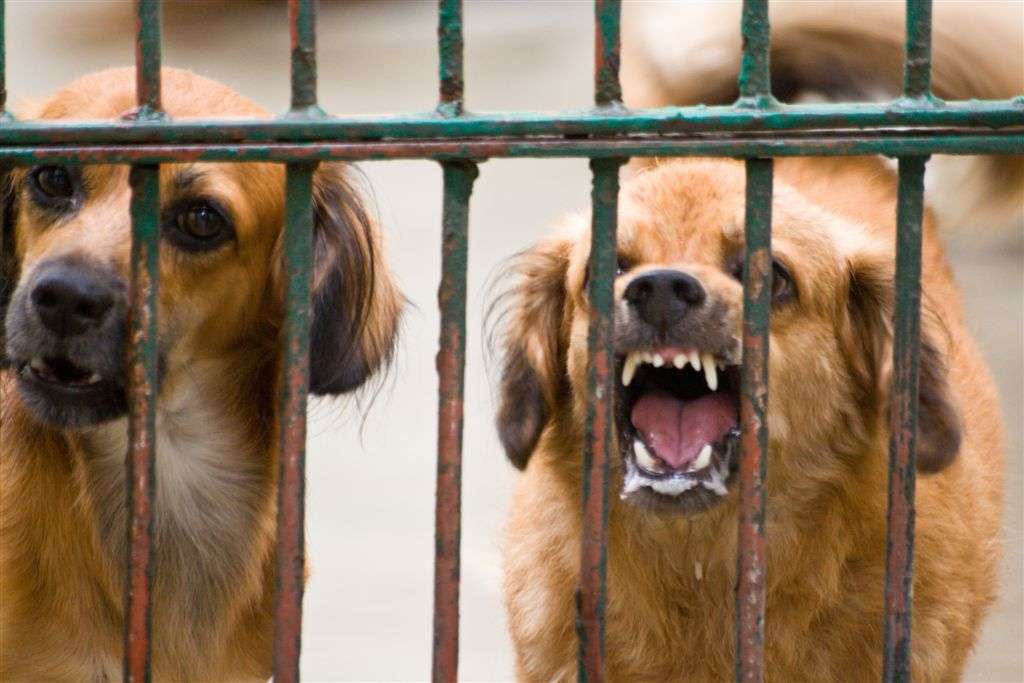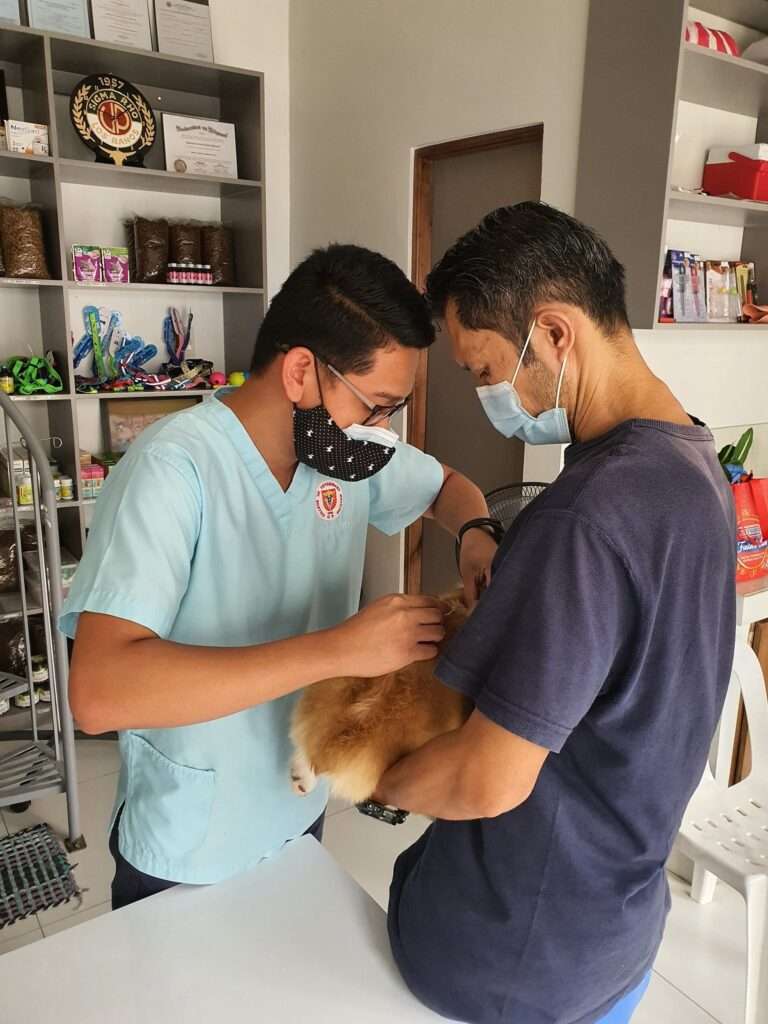How Often Does a Dog Need a Rabies Shot? Protecting Your Pup
Maintaining the health and well-being of your furry companion is of utmost importance as a dog owner. Staying up-to-date on your dog’s vaccinations is one of the most critical ways to achieve this goal. Among the most crucial of these vaccinations is the rabies vaccine.
Rabies is a fatal virus that has the potential to impact both dogs and humans. Once symptoms appear, the virus is almost always fatal, making prevention through vaccination crucial.
This article will delve into the significance of rabies vaccines for dogs, covering topics such as vaccination frequency, the pros and cons of vaccination, and vaccine cost. Being knowledgeable about rabies vaccines can aid in ensuring your dog’s health and safeguarding your community against this lethal disease.
What is Rabies and How Does it Affect Dogs?

Rabies is a highly contagious viral disease that poses a serious threat to both dogs and humans. It is primarily transmitted through bites or scratches from infected animals, including dogs. Once the rabies virus enters a dog’s body, it targets the central nervous system, including the brain and spinal cord, leading to inflammation and severe neurological symptoms.
For dogs, rabies can have devastating consequences. Initially, affected dogs may display general signs of illness such as fever, lethargy, and a decline in appetite. As the disease progresses, their behavior may undergo dramatic changes, with previously friendly dogs becoming aggressive or fearful. Other symptoms include restlessness, excessive drooling, and difficulty swallowing.
As the virus continues to attack the nervous system, dogs may experience muscle weakness and loss of coordination, leading to paralysis. Additionally, seizures, disorientation, and even sudden death can occur. It’s important to note that once clinical signs of rabies become evident, the disease is almost always fatal in dogs.
Given the gravity of this disease, ensuring that your dog receives timely vaccinations against rabies is of paramount importance. Regular vaccinations not only protect your beloved furry friend but also help prevent the spread of rabies to other animals and humans.
How Do Rabies Vaccines Work?
Rabies vaccines are designed to stimulate a dog’s immune system to provide protection against the rabies virus. These vaccines contain a modified form of the virus that is either weakened or inactivated, ensuring that it cannot cause the disease in dogs.
When a dog receives a rabies vaccine, it prompts the immune system to recognize the specific components of the virus as foreign invaders. The immune system then mounts a response by producing antibodies, which are special proteins that can recognize and neutralize the rabies virus.
The beauty of these vaccines lies in their ability to teach the immune system how to fight off the real virus without actually causing illness. By introducing a safe and controlled version of the virus, the vaccine primes the dog’s immune system to be ready for any potential exposure to the actual rabies virus in the future.
If a vaccinated dog later encounters the rabies virus, the antibodies generated by the vaccine will recognize it and swiftly neutralize it, preventing the virus from infecting the dog’s cells and spreading throughout the body. This immune response acts as a powerful defense mechanism, offering crucial protection against the devastating effects of rabies.
Do note that while rabies vaccines are highly effective, they do require periodic boosters to maintain their effectiveness. Regular revaccination ensures that the dog’s immune system remains prepared and capable of providing robust protection against the rabies virus.
How Often Should a Dog Receive a Rabies Vaccine?
Several factors, such as the dog’s age, health condition, and local regulations, determine how frequently they should receive a rabies vaccine. Typically, puppies receive their first rabies vaccine at approximately 12-16 weeks of age, and then require a booster shot one year later.
After the first booster, the frequency of rabies vaccines can vary depending on the laws in the dog’s area. Some areas require annual rabies vaccinations, while others allow for vaccination every three years. Certain dogs may require more frequent rabies vaccinations if they are at a higher risk of encountering the virus.
It is important to acknowledge that rabies vaccines are not only advantageous for dogs but also a mandatory requirement in several regions. Not adhering to these rules can lead to significant fines or other consequences.
Risks and Benefits of Rabies Vaccines
Like any medical intervention, rabies vaccines carry a minimal risk of side effects. Dogs may experience mild symptoms such as a slight fever, temporary fatigue, or tenderness at the injection site. In rare instances, more severe reactions, including allergic responses, can occur.
However, it’s important to emphasize that the benefits of vaccinating your dog against rabies far outweigh the potential risks. Rabies is an incredibly dangerous and deadly disease that poses a serious threat to the health of both dogs and humans. By ensuring that your dog receives the recommended rabies vaccines, you are actively preventing the spread of this devastating virus and providing vital protection for your furry friend.
In addition to safeguarding against rabies, certain rabies vaccines offer the added advantage of immunity against other common canine diseases, such as distemper and parvovirus. These combination vaccines provide comprehensive protection and help keep your dog healthy and resilient against multiple threats.
Vaccinating your dog against rabies not only protects their well-being but also plays a crucial role in promoting public health. By maintaining high vaccination rates in the dog population, we can create a safer environment for all pets and humans alike.
How Much is a Rabies Shot for Dogs?

The cost of a rabies shot for dogs can vary based on different factors such as location, veterinarian fees, and additional services provided. On average, the cost of a rabies vaccine can range from $15 to $50.
It’s important to note that the price may not only cover the vaccine itself but also include other aspects such as a veterinary examination, necessary paperwork, and potential licensing fees. Depending on your local regulations, you might be required to have your dog vaccinated by a licensed veterinarian, which could contribute to the overall cost.
While the cost of a rabies shot may vary, it’s essential to remember the significant value it holds. By getting your dog vaccinated against rabies, you’re taking a responsible step in protecting their health and ensuring the safety of both your furry friend and the community.
Investing in a rabies vaccine is a small price to pay when considering the potential risks associated with this deadly disease. By vaccinating your dog, you are not only safeguarding their well-being but also contributing to the collective efforts to prevent the spread of rabies.
Reach out to your veterinarian to get accurate pricing information specific to your location and to discuss any concerns you may have. Together, we can ensure that our beloved dogs receive the necessary vaccinations to lead healthy, happy lives.
Conclusion
As responsible dog owners, ensuring our beloved furry friends receive regular rabies vaccines is a critical responsibility. The frequency of these vaccines may vary depending on local regulations, but it’s crucial to prioritize compliance.
Not only does adhering to these laws safeguard your dog’s health, but it is also a legal obligation that shouldn’t be overlooked. Neglecting to follow these regulations can result in severe penalties and other undesirable consequences.
Vaccinating your dog against rabies is a vital measure in preventing the spread of this life-threatening virus and protecting both your pet and the larger community. While there is a slight risk of side effects associated with the vaccine, the benefits of safeguarding against rabies far outweigh these minimal concerns.
By staying proactive and ensuring your dog receives the necessary rabies vaccines, you are actively contributing to the well-being of your furry companion and the overall safety of the community. Together, we can create a healthier and happier environment for all dogs and their loving families.
Frequently Asked Questions
Q: Why is it important for my dog to get a rabies shot?
A: Rabies is a highly contagious viral disease that affects the nervous system of mammals, including dogs and humans. It is almost always fatal once symptoms appear. Vaccinating your dog against rabies is crucial for their health and safety, as well as for the protection of yourself and others.
Q: How often does a dog need a rabies shot?
A: The frequency of rabies vaccinations for dogs may vary depending on local laws and regulations. In most areas, an initial rabies vaccination is given when the dog is around 3 to 4 months old, followed by a booster shot after one year. Subsequent vaccinations are usually given every one to three years, depending on the vaccine used and local regulations.
Q: Can my dog’s rabies shot be given by a veterinarian only?
A: Generally, rabies shots must be administered by a licensed veterinarian. This is to ensure proper handling and administration of the vaccine. However, in some regions, under specific circumstances, trained veterinary technicians or authorized personnel may be allowed to administer the vaccine under the supervision of a veterinarian.
Q: Are there any side effects from the rabies vaccine?
A: Most dogs tolerate the rabies vaccine without any significant side effects. However, mild reactions such as swelling or soreness at the injection site, mild fever, and lethargy can occur. Serious allergic reactions are rare but possible. If you notice any unusual or severe symptoms after vaccination, consult your veterinarian immediately.
Q: Can my dog’s rabies shot be delayed if they are pregnant, nursing, or sick?
A: It is generally recommended to follow the vaccination schedule prescribed by your veterinarian. However, in certain situations, such as pregnancy, nursing, or serious illness, your veterinarian may advise postponing the vaccination until the dog’s health improves. It is essential to consult with your veterinarian for guidance in these cases.
Q: Is a rabies shot the only vaccination my dog needs?
A: No, a rabies shot is just one of the many vaccinations recommended for dogs. There are other important vaccinations, such as distemper, parvovirus, adenovirus, and others, that are necessary to protect your dog from various diseases. Your veterinarian can provide a comprehensive vaccination schedule tailored to your dog’s specific needs.
Q: Can my dog be exempted from rabies vaccination requirements?
A: In some cases, exemptions from rabies vaccination requirements can be granted based on medical reasons or if the dog’s health is deemed at risk due to age or other factors. However, such exemptions are typically rare and require proper documentation from a licensed veterinarian and approval from local authorities.
Remember, it’s essential to consult with your veterinarian regarding the specific rabies vaccination requirements and recommendations for your dog based on your location and individual circumstances.
References
- VCA Hospitals. (n.d.). Rabies in Dogs. Retrieved from https://vcahospitals.com/know-your-pet/rabies-in-dogs
- WebMD. (n.d.). Rabies in Dogs: Symptoms, Treatment, and Prevention. Retrieved from https://pets.webmd.com/dogs/rabies-dogs
- Chewy. (n.d.). Rabies Vaccines for Dogs: Everything You Need to Know. Retrieved from https://be.chewy.com/rabies-vaccines-for-dogs-everything-you-need-to-know/
- Cumberland Animal Clinic. (2022, July 15). Dog Rabies Vaccine Schedule. Retrieved from https://www.cumberlandanimalclinic.com/site/blog/2022/07/15/dog-rabies-vaccine-schedule




